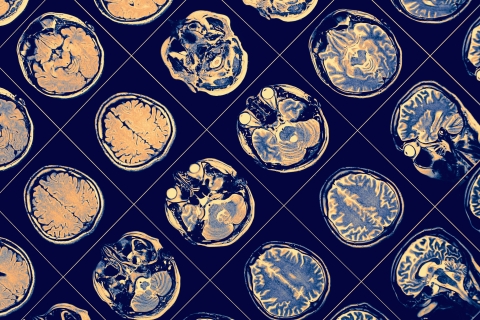

By participating, you’ll be contributing to leading-edge mental health research that aims to improve people’s lives
By participating, you’ll be contributing to leading-edge mental health research that aims to improve people’s lives.
We are using electroencephalogram (EEG), which measures brain activity, to study patterns in the brain that may be linked to anxiety.
Study Description
This research project has the potential to change how we understand and diagnose anxiety, one of the most widespread mental health challenges in today’s society. Using EEG technology to measure brain activity, we aim to identify a unique pattern – called a biomarker – that could indicate when someone is experiencing a specific type of anxiety known as Goal Conflict anxiety. This form of anxiety occurs when people feel stuck between competing goals or decisions: something many experience but is hard to detect or measure objectively.
Right now, anxiety is diagnosed mainly through self-report and clinical interviews. But what if we could back that up with objective brain data? This study is an important step toward that future. If successful, it could lead to faster, more accurate, and more personalised diagnosis – helping people get support earlier and reducing the stigma around mental health by showing it has a measurable biological basis.
We’re also taking a personalised approach to analysing the brain activity data, recognising that each person’s brain is different. By embracing that diversity rather than averaging it out, we hope to develop insights that reflect how anxiety actually shows up in real people, not just in theory.
This kind of research has wide-reaching benefits: it could influence how doctors, psychologists, and even schools support people struggling with anxiety. Over time, it could reduce pressure on healthcare systems by making early intervention easier and more precise.
Why volunteer?
By participating, you’ll be contributing to cutting-edge mental health research that aims to improve people’s lives – including possibly your own or those you care about. You’ll also get a close look at how research is helping shape the future of mental health care. Many participants find it rewarding to be part of something that could lead to meaningful change!
What will participants be doing?
You will be asked to complete some short multiple-choice personality-based questions, followed by a 2 minute recording of Resting State EEG (this records the brain at rest). Then, you will be asked to complete a short, computer-based task while the EEG records the brain's responses.
Duration
A standalone, 2-hour session in King Henry Building, KH2.03 (Psychophysiology Lab).
Apply
If you are interested in taking part, or have any further questions about the study, please contact Ben Stocker (ben.stocker@port.ac.uk) or apply directly via this Google Bookings calendar.
Who can take part?
You can take part if you:
- Are comfortable communicating in English
- Are generally healthy (not immunocompromised or currently unwell)
- Are right-handed
- Are neurotypical (no diagnosis of a neurological or learning condition, including ADHD)
- Have normal or corrected-to-normal vision
Unfortunately, we are unable to include individuals who:
- Are immunocompromised
- Have a neuromuscular condition that affects movement
- Have been diagnosed with a mental health condition
- Are left-handed
- Are taking psychoactive medication (such as antidepressants, sedatives, or beta/calcium channel blockers)
- Have a history of neurosurgery
- Wear head coverings or have large hairstyles (e.g., weaves) that cannot be removed for EEG setup
All criteria are in place to ensure the EEG data is as accurate and meaningful as possible.
Closing date for applications
31 July 2025
Ethics code: SHFEC 2025-005
Enable University alerts
Turn on notifications for critical updates like closures, safety alerts, and urgent service disruptions.





